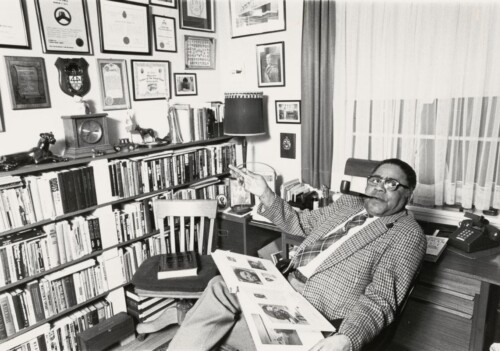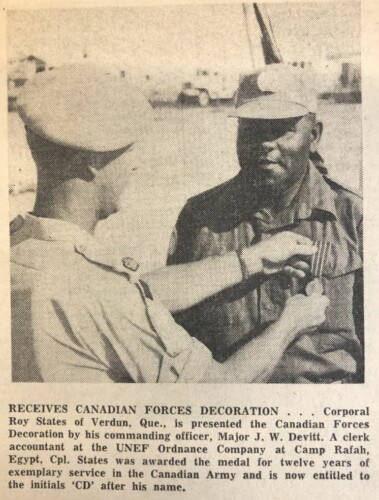Roy States had felt the overt effects of racism his entire life. Turned away from the Canadian army, for what he was told was a “white man’s war,” he persevered and joined another regiment as a bugler in the 1950s. Inspired by Black nationalist Marcus Garvey and finding few sources in the local library, States began to collect information and books about Black people in history from the age of 15––a passion he maintained throughout his life.
After retirement from the army in 1969, States began to work at McGill University, becoming the supervisor of Special Events. Known as McGill’s Master of Ceremonies, States was unflappable under pressure. In the broader contexts of Montreal and Canada, he was a prolific activist, guest speaker, mentor, and author.
In 1981 his extensive Black history collection, then the largest in private hands in Canada, was donated to McGill’s Rare Books and Special Collections. Its works detail the impact that Black people had on history and how many of their contributions have been ignored or erased, history which States believed was key in tackling discrimination. For his work, he was honored at the first annual National Black Awards in 1973. In the same year he gave the keynote address at an affirmative action conference in New Glasgow, Nova Scotia, where he stated: The dehumanization of a people has to cease. “We are all God’s people. We have been told that we contributed nothing yet the sugar you used in your coffee, potato chips, ice cream, player piano, refrigerator trucks are all the inventions from the mind of a black man.”


